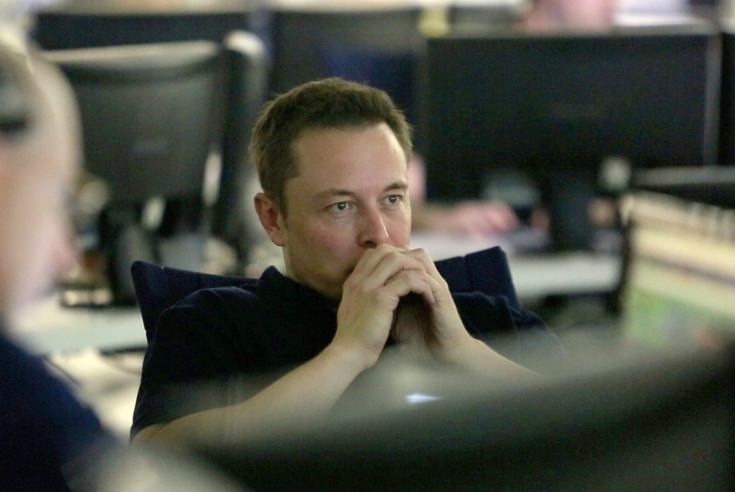Questions Surround X/Twitter, After Elon Musk Expletive-Filled Rant

Has Elon Musk sabotaged X going forward? Analysts cite Twitter owner as the biggest liability for the platform
The fallout from Elon Musk’s extraordinary outburst at advertisers on Wednesday continues, as a couple of analysts offered their insights into the controversy.
During an on-stage interview at The New York Times DealBook Summit, Musk had made a rare public apology for recently endorsing an anti-Semetic conspiracy theory.
But this was overshadowed when Musk was then questioned about the most recent advertising boycott.

Expletive-filled rant
“I don’t want them to advertise,” Musk replied. “If someone is going to blackmail me with advertising or money go [expletive] yourself”.
Musk then doubled down in front of the shocked audience.
“Go. [Expletive]. Yourself,” he slowly reiterated. “Is that clear? Hey Bob, if you’re in the audience, that’s how I feel.”
He seemed to refer to Disney chief executive Bob Iger, who had spoken at the summit earlier in the day.
Musk’s comments against advertisers come as many big name firms are boycotting their spend on his platform due to their ads appearing alongside extremist content.
His comment have not impressed a number of advertising executives.
“Companies need to protect the brands they work for,” Lou Paskalis, founder of marketing consultancy AJL Advisory and former head of global media at Bank of America was quoted as saying by Reuters. “This isn’t advertisers getting together in a secret clubhouse to support an agenda.”
“This isn’t surprising to any brand who is still advertising on X,” Shama Hyder, CEO of Zen Media and marketing/advertising/X expert told Silicon UK via email.
Hyder had joined when Twitter had less than 2,000 users.
“Elon may have used expletives this time, but his message has always been clear – advertise if you want or beat it,” said Hyder. “Most of our clients for example have not been moved one way or another by Elon Musk’s words. They simply care about reaching their audience. As long as their audience is there, they will continue to advertise. That being said, X is not the only game in town and a bigger share of budgets is going to LinkedIn, TikTok and Meta. There is also a trend of moving away from solely paid to earned, owned, and influencer marketing as well.”
In a damage control move, X chief executive Linda Yaccarino in a memo to staffers said Musk’s interview was “candid and profound,” and encouraged staff to watch it. She reiterated that X’s mission is to be an open platform without censorship.
Musk also acknowledged on Wednesday that an extended advertising boycott could bankrupt X, and he declined to say whether he would use his personal fortune to save the firm.
Musk instead suggested that the public would blame the brands and not him for a potential collapse.
End in sight
But at least two analysts have disagreed and suggested that it is Musk himself that is X’s biggest liability.
“If anyone is killing X, it’s Elon Musk – not advertisers,” Insider Intelligence analyst Jasmine Enberg told Reuters.
“Should X collapse, an autopsy would reveal a series of platform policy decisions, staffing cuts, tweets and antagonistic comments by Musk that have driven away X’s primary source of revenue,” Enberg said.
Mike Proulx, VP research director at Forrester agreed in a blog post on Thursday, and wrote that advertisers are not to blame for the acceleration of X’s end.
“It’s not every day that a prominent business owner tells its revenue suppliers to ‘go [expletive] [themselves],” but that’s exactly what Elon Musk said to X advertisers yesterday during The New York Times’ DealBook Summit – not once but three times (the latter instance using the acronym “GFY”),” noted Proulx.
“The day Elon Musk announced his intent to acquire Twitter marked the actual beginning of the platform’s end,” Proulx wrote. “In the 13 months since Musk took over (a deal he tried to back out of), the company has been decimated: its brand, its revenue, and its valuation.”
“Musk blamed advertisers and their boycott as the reason for what ‘is going to kill the company,’” wrote Forrester’s Proulx. “But let’s be clear: Advertisers aren’t responsible for X’s demise – they are not beholden to any one channel, platform, or person. They will invest their media budgets in brand-safe environments that perform, and they will divest those dollars when necessary. They have neither obligation nor culpability to keep X afloat.”
“The blame for the state of X lies at the top of the company: Musk’s own choices continue to devolve X’s business – piece by piece,” Proulx concluded. “His crass message to advertisers will only drive more revenue out the door – revenue that the company needs given the company’s heavy debt load. How much more runway Musk gives X is anyone’s guess. But if his comments yesterday are an indication of anything, it’s that an end for X is in sight.”
Debt burden
The Guardian also noted in an analysis piece that before Musk took control of Twitter (as it was then), it was making a loss but was not heavily indebted, as it is now.
It pointed out that Musk’s takoever was part-funded by $13bn (£10.3bn) of debt, which now sits on X’s balance sheet and requires quarterly payments of $300m.
The next payment is due at the end of January.
The Guardian also reminded readers of Musk’s comments in November last year, having laid off half the staff, that “bankruptcy isn’t out of the question”.
The Guardian reported that X is loaded with debt and the advertising revenue needed to pay for it has crashed. It said that advertising is crucial to the site’s business model – for all Musk’s comments about changing it radically into an “everything app” – and accounted for nearly 90 percent of revenue under previous ownership.